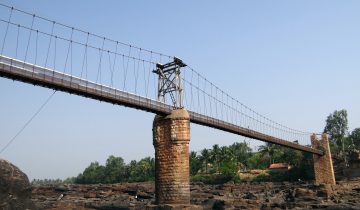Caste Discrimination: The Bane of Indian Society

Introduction
The Dalits have been constant victims of defamation within college campuses, and are almost always subjected to different forms of discrimination by the students and teachers alike. In fact, many tribal students in universities have complained that they “did not receive the kind of support other students received from their teachers”. This attitude is indeed shocking—for it implies that some brilliant students, who have the ability to rise in the educational realm, are impeded from doing so because of their caste, and due to the narrow-minded mentalities of those around them. It is undoubtedly a cruel hierarchy—that disrupts and ruins the lives of millions of innocent, young Indians.
The Suicide of Rohith Vemula
However, this issue has only been magnified by the suicide of PhD student Rohith Vemula (who studied at the Hyderabad Central University) on 17 January, 2016 (Sunday). He had been protesting against his expulsion from the university’s housing facility—which he and four other Dalit students had faced, courtesy of their positions in society. Before his death, he wrote a note; it was described by BBC as “an eloquent and chilling suicide note”. Vemula, who took an interest in “science, stars, nature and people”, had been crushed by the dreadful prejudice, poverty, and antipathy he had faced as a student.
Response to the Suicide
Vemula’s suicide has sparked outrage across the nation—as it has shed light on the terrible way the Dalits are treated, and how the stigma of “untouchability” has still not been removed from Indian society. In fact, even in the All India Institute of Medical Sciences—one of the best universities in India—, Apoorvanand (a Dalit student) had faced massive amounts of calumny and insults from his fellow students. What is surprising is the fact that AIIMS produces some of the nation’s best doctors; so, it is obvious that accomplishment is not an indicator of one’s moral education. Moreover, in 2008, Jaspreet Singh, a student at the Government Medical College in Chandigarh, killed himself after facing severe discrimination from students. It is undeniably a sorry actuality that this kind of discrimination has been happening for numerous years across the Indian subcontinent.
It is extremely appalling and sad that such a vast number of Dalit students, who have so much potential to rise and succeed in life, are taking away their lives due to the discrimination and slander they face when placed before society. India is a nation whose attitudes are steadily progressing; however, those regarding the lower-castes have stagnated at a sorry deadlock. We have to alter these parochial mindsets of ours, so that the Dalits are recognised not by their caste, but by their intelligence and personality.
Conclusion
Altogether, let us hope that Vemula’s death was not in vain. In fact, the University of Hyderabad’s administrative board revoked the suspension of the other four Dalit students. However, sadly, as reported by The Hindu, “students and faculty members said the revocation of the suspension came too late”. Let us hope that this tragedy will mark a change in the attitude of Indian students toward the Dalits. As said by the Hindustan Times, “The recent incident is a wake-up call for institutions that are still in denial about caste battles that are now being fought on university campuses and pushing Dalit students over the edge”.
So how can discrimination be curbed? The most powerful way is by spreading the repercussions of this stigma in the media–and enlightening people on the pain and sufferings that members of the lower classes have to endure on a daily basis. The Dalits should be given a portal through which to voice their opinions, in order to give Indians a view into their world, and the difficulties and obstacles that lie in their paths. Additionally, educational institutions should strive to ensure the equal treatment of all classes of people, in order to ascertain that the lower castes are given the attention they deserve. And after all, if educational colleges and institutions were established in order to educate and give rise to the future leaders and professionals of India, why are such intelligent, ambitious, and accomplished students choosing to end their lives? If these colleges are said to be open-minded and inclusive, why are so many Dalit students choosing to put such a drastic end to the discrimination they face? These are difficult and painful questions to face and answer, but hopefully the suicide of this innocent student will be a catalyst to initiating positive social change across the educational and societal sphere of India.
[Image Attribute: Counselling]




